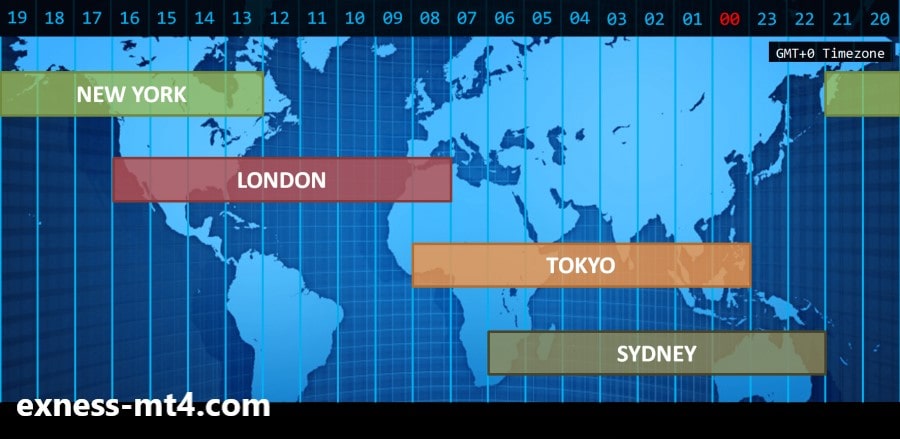Currencies are traded 24 hours a day, 5 days a week worldwide. The market will open for trading on Monday morning in Wellington, New Zealand and open continuously until Friday night in New York. Knowing which trading sessions are active can help you choose right currency pair to trade and which economic events to consider before trading.

Each trading day can be divided into three trading sessions, depending on financial center operating for a specific period of time. Times each session opens and closes based on local business hours:
| Session | City | Open (EET*) | Close (EET*) |
| Asia | Tokyo | 2:00 – 3:00 | 11:00 – 12:00 |
| Europe | London | 10:00 | 19:00 |
| Americas | New York | 15:00 – 16:00 | 0:00 – 1:00 |
Asian Session
With a major commercial center in Tokyo, Asian Session includes China, Australia, New Zealand and Russia. First financial center to open after real weekend was Wellington, New Zealand. While the Tokyo market only opens at 2am EET (3am EEST). Closing hours coincide with opening hours of European Session.
Important economic data from that region could affect European and American session opening at that time. You can expect significant price movements for USDJPY, EURJPY and AUDJPY.
European session
As financial centers in Asia are about to close, European markets begin their day. Since European session coincides with both Asia and Americas, there is usually an increase in market volatility and liquidity, however, spreads tend to be narrower during London Session.
Key economic news will be released from euro area, UK and Switzerland. Trends that do not usually start during European Session may continue until opening of New York Session. Most liquid currency pairs are EURUSD, GBPUSD, USDCHF, EURGBP and EURCHF.
Americas Session
Dominated by United States with its major financial center in New York, Americas Session also includes Canada and South American countries. Naturally, first half of session will be highly liquid, while European markets are still open.
Several economic indicators that have a strong influence on market will be released in US and Canada, so keep an eye out and check economic calendar events to avoid trading risks for upcoming news. . Since most forex transactions involve USD, you can expect that all minor currency pairs are volatile, which is highly liquid during this session, in fact allowing you to trade translate any currency pair.

